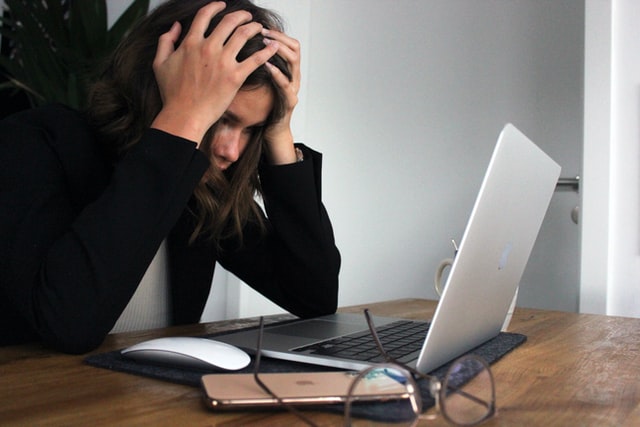ADHD parenting isn’t like other parenting styles. Normal rule-making and housekeeping routines can become challenging depending on your child’s symptoms, so you’ll need to adapt. Managing your child’s ADHD-related behaviors can be difficult, but there are solutions.
Parents of ADHD children must recognize that their children’s brains are functionally different. In fact, children with ADHD are more prone to impulsive conduct. To help an ADHD child grow, you must change your behavior and learn to manage your child. Treatment for ADHD begins at home.
What is ADHD?
Everyone has difficulty paying attention, listening, or waiting at times. However, people with ADHD frequently struggle with these things. They are not doing it intentionally. ADHD is a medical disorder that impairs an individual’s ability to pay attention and maintain self-control.
Individuals with ADHD have a more difficult time remaining focused. They may be a little more fidgety than other people. ADHD can make it more difficult to control behavior, which means that children and adolescents may get into more problems. It can also affect how they interact with other people.
ADH) is an acronym for Attention Deficit Hyperactivity Disorder. That is the medical name for concentration and self-control problems, which can cause someone to fidget and move around excessively.
However, medication can benefit the majority of children with ADHD. Parents struggling with finances can use discount cards to save on Vyvanse, which helps children stay focused as they learn new skills. It is a component of ADHD treatment.
Additionally, therapy, parent education, and school assistance are included in the treatment. It works best when parents, teachers, and therapists assist children in developing any social, emotional, or behavioral skills that have lapsed as a result of ADHD. For the majority of children, it is beneficial to combine medication with treatment.
Dealing Your Child’s ADHD At Home
As parents, having a child with ADHD presents specific difficulties, and you must devise a strategy for coping at home. You can help your child overcome self-doubt and manage their ADHD behavior by following these tips.
Promoting a Positive Attitude and Allowing Breaks
According to research, a single supportive adult in a child’s life with ADHD is critical in determining the child’s future success. Make sure to spend ample quality time at home with your teenager—and make it enjoyable and rewarding for both of you.
Occasionally, when things become too difficult at home, it’s beneficial to take a break from one another. A weekend away might reintroduce you to the possibility of resolving your domestic troubles and provide you with the distance you need to maintain a healthy parent-child relationship.
As youngsters explore newly available options, they are bound to make excellent and terrible choices. Also, it is a natural and necessary aspect of maturing into a responsible adult.
Develop Healthful Habits
If your child or teen is prescribed medication, it should be taken exactly as directed. If difficulties emerge, contact your child’s health care practitioner. Ascertain that your child receives proper sleep, consumes a well-balanced diet consisting of three meals, a snack, and adequate water daily, and has access to some exercise. These healthy practices can help your child feel better and help lessen the symptoms of ADHD.
Establish Routines
Collaborate to create a checklist of tasks associated with daily chores, getting ready for bed, and school for your child to turn to when they become disoriented. Encourage your child or teen to keep a daily planner to keep track of any assigned homework.
Establish a set time and location for homework, and use a timer to remind your child to check in with you twice or four times each hour to see how the schoolwork is going. Consider brain breaks if your child requires them, as well as movement between tasks or the use of a suitable fidget.
Improve Social Skills
Your youngster or adolescent may struggle with impulsivity, emotional outbursts, and interfering with others. This can have a detrimental effect on their peer interactions.
Conduct mock conversations with your youngster at home. Remind them gently not to interrupt. Assist them in taking deep breaths when they become emotional. Demonstrate to them how to have an equal exchange of information. Discuss with them the importance of having empathy and compassion for others.
Talk About ADHD
Please do not be hesitant to discuss your child’s ADHD with them at home. Discuss how it affects them and what you can do together to make things easier and teach them those critical life skills. If you suffer from it, let them know it has aided you.
Final Thoughts
Bear in mind that your child has ADHD and that it is your obligation as a parent to educate them on what they need to know; after all, learning begins at home. Do not be afraid to discuss with your child or teen; you may address the issue gradually and assist them in growing.
Photo by Elisa Ventur on Unsplash
Any Web sites linked from Medical News Bulletin site are created by organizations outside of Medical News Bulletin and are the sole responsibility of those organizations. These links are strictly provided by Medical News Bulletin as a convenience to you for additional information only. Medical News Bulletin does not approve or endorse the content on any third-party Web sites and is not responsible for the content of linked third-party sites or third-party advertisements, as well as does not make any representations regarding their content or accuracy. Your use of third-party web sites is at your own risk and subject to the terms and conditions of use as per such sites policies. Medical News Bulletin does not provide specific medical advice, diagnosis or treatment and hereby disclaims any assumption of any of the obligations, claims or liabilities..



